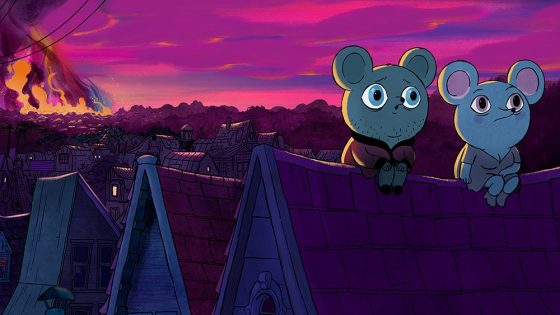Spanish animation is experiencing a historic boom. Shorts and features from the country are achieving notable success at festivals and the box office, while Spanish artists are contributing to some of the most influential film and TV productions coming from Hollywood today.
The question now is what steps should be taken to build on recent success.
Spaniard Almu Redondo won an Emmy this year for her work on the Cartoon Saloon-produced “Star Wars: Visions” episode “Screecher’s Reach,” and Pablo Berger’s Spanish feature “Robot Dreams” was nominated for a 2024 animated feature Academy Award. Few artists had as profound an impact on the aesthetic of the “Spider-Verse” films as Alberto Mielgo, who also won the animated short Oscar in 2022 for his film “The Windshield Wiper.”
Spanish artists flourishing abroad is a longstanding tradition, but one that may be waning. Many animation professionals are now staying in Spain, while others who emigrated in the past are returning to ply their trade in their homeland. One standout example is “Klaus” director, “Despicable Me” creator and SPA Studios founder Sergio Pablos.
“There was a wave of creators like me that fled the country in search of opportunities when there was not much of a local industry,” he recalls. “Many eventually made it back home with experience and know-how, which shows in the quality of [current] projects.”
Damián Perea, director of Spain’s only Oscar-qualifying animation festival, Animayo, echoed Pablos’ sentiment but added that Spanish educational initiatives are equally important in keeping talented young artists in Spain.
Perea credits an “increase in great animation schools in Spain” as a critical factor in the current Spanish boom. Animayo alone has facilitated the distribution of more than €600,000 ($646,000) in scholarships from top Spanish schools to student artists.
There are commercial reasons for Spain’s growing success abroad as well. According to Filmax’s head of international, Iván Díaz, “In the marketplace, dramas, comedies, and romantic movies are a challenge. But it’s different for animated films, which are much easier for a seller to work with.” Filmax has two animated features at Cannes this year, “The Treasure of Barracuda” and “Superklaus.”
According to ICEX, the Spanish Institute for Foreign Trade, in 2021, Spain’s animation sector saw a turnover of roughly €950 million ($1 billion). Diboos, a national association representing more than 80% of Spanish VFX and animation production, says that 90% of the industry’s annual revenues came from international sales and services, proving a global appetite for Spanish animation.
With its recent expansion, Spain’s industry has also experienced its fair share of growing pains. According to Manuel Cristobal, producer of the European Film Award best animated film winner “Buñuel in the Labyrinth of the Turtles” and upcoming Annecy competition player “The Glassworker,” Spain’s industry has hit a ceiling that only a change in government policy can overcome.
“The main problem in the industry is the size of the projects it can achieve with the existing legal framework,” says Cristobal. “If you go over a certain budget, it is better to use tax schemes and have your project considered a foreign production.”
Pablos shares a similar concern about public programs backing ambitious local productions. “Government tax incentives are great and have allowed us to compete by attracting investors and helping build a service industry,” he says. “However, the sad truth is that in a heavily subsidized scenario, private funding is disincentivized, limiting the kind of projects we can tackle without foreign investment.”
“Unicorn Wars” producer Iván Miñambres argues that another challenge facing Spanish productions comes from poor domestic distribution. “There is a lack of understanding here about how to support these films.”
Consider, for example, the aforementioned “Robot Dreams.” According to Miñambres, “In the case of ‘Robot Dreams,’ it was released in Spain before all the accolades and the Oscar nomination, but it was marketed and scheduled like a kid’s movie.”
“Robot Dreams” has grossed $3.7 million globally, but only $506,000 came from Spain. It’s easy to imagine a scenario in which Neon’s North American release of the film on May 31 will eclipse that number significantly.
Miñambres says the issue isn’t unique to theatrical distribution either. When Alberto Vázquez’s blood-soaked war allegory “Unicorn Wars” got a physical media release in Spain, the producer recalls seeing a department store display where it was advertised alongside Disney and Illumination titles to kids and families.
Yet, despite a few shortcomings, there is little doubt that Spain’s animation industry is firing on all cylinders, and the country stands out as a leading animation producer in Europe. Spain is the only country to boast four animated feature European Film Award wins: Fernando Trueba and Javier Mariscal’s “Chico and Rita,” Raúl de la Fuente and Damian Nenow’s “Another Day of Life,” Salvador Simó’s “Buñuel in the Labyrinth of the Turtles,” and Berger’s “Robot Dreams.”
Source Agencies



